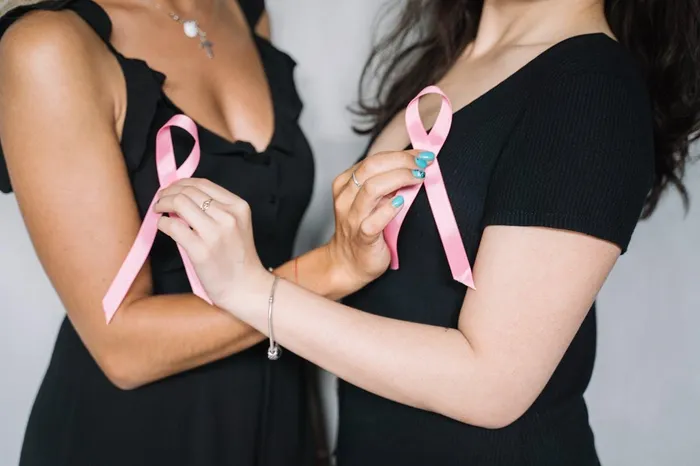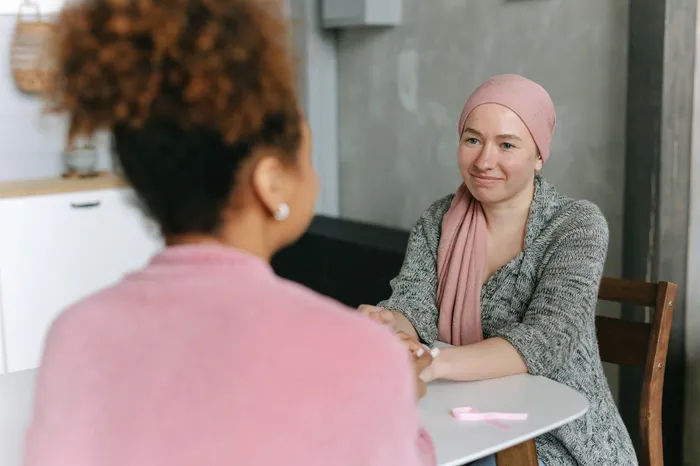10 must-know FAQs for Breast Cancer Awareness Month: insights for South African women and men

October marks Breast Cancer Awareness Month in South Africa.
Image: Anna Tarazevich /Pexels
October in South Africa isn’t just about spring blooms and warmer days; it’s also Breast Cancer Awareness Month, a time to shine a light on one of the country’s most pressing health challenges.
Breast cancer is the most common cancer among South African women, with a lifetime risk of 1 in 27, according to the 2023 National Cancer Registry.
The Cancer Association of South Africa (CANSA) estimates that around 19.4 million South African women over the age of 15 are at risk.
Even with these high numbers, many people still avoid seeking help early because of myths and unanswered questions.
“Knowledge really is power,” says Dr Salomine Theron, radiologist and head of the Tygervalley Mammography Centre at SCP Radiology.
"Many women still have questions about their personal risk, the role of mammograms, and what different tests can and can’t show. Clear answers can go a long way in saving lives.”
Here are 10 common questions about breast cancer that everyone in South Africa should know.

Addressing common questions about breast cancer, highlighting risk factors, detection methods, and the importance of early screening for both women and men
Image: Thirdman /Pexels
Does breast cancer run in families?
Yes, but not in every case. Only about 5 to 10 percent of breast cancers are inherited, usually because of BRCA1 or BRCA2 gene mutations. If your mother, sister, or grandmother had breast or ovarian cancer, your risk is higher, but most cases are not genetic.
Also, not having a family history does not mean you are not at risk.
What increases your risk of developing breast cancer?
Risk factors include age, obesity, alcohol use, not having children or having them later in life, and hormonal changes like early menstruation or late menopause. Sometimes, though, breast cancer appears without a clear reason, so regular screening is very important.
Is breast cancer more treatable if caught early?
Absolutely. If detected early, survival rates can be as high as 90%, according to CANSA. The challenge? Many South Africans delay screenings due to stigma, cost, or lack of access to healthcare. Early detection is still your best defence.
What tests are used to detect breast cancer?
Mammogram: The most effective screening tool for women over 40. Ultrasound: Useful for younger women and those with dense breast tissue. MRI: Recommended for high-risk patients. Biopsy: The only way to confirm cancer is by testing cells from a lump.
Are all breast cancers the same?
No. Breast cancer has different types, including ductal, lobular, triple-negative, and HER2-positive cancers. Each type behaves differently and requires tailored treatment. This is why two women with breast cancer can have very different treatment journeys.
Can men get breast cancer?
Yes, though it’s rare. Around 1 in 100 cases of breast cancer occurs in men. Warning signs include a lump behind the nipple, nipple discharge, or inversion. Men are often diagnosed later because they don’t expect to get breast cancer, making awareness even more important.
How often should I check my breasts?
Do a self-exam once a month, ideally a few days after your period when breasts are less tender. Look for lumps, changes in size, skin dimpling or nipple changes. If something feels off, don’t wait; see your doctor immediately.
When should I start getting mammograms?
In South Africa, most private radiology practices recommend starting at age 40, or earlier if you have a strong family history or genetic risk. Public sector access is more limited, but awareness and advocacy are pushing for better screening availability. Always ask your GP or radiologist what’s right for you.
Does breast cancer hurt?
Not usually. Most breast cancers are painless, which is why relying on pain as a warning sign is risky. Many women delay check-ups because “it doesn’t hurt”, but cancer often grows silently.
I’m young, should I still worry about breast cancer?
While breast cancer is less common in your 20s and 30s, it does happen. Young women with strong family histories or known genetic risks should start screenings earlier. Even without risk factors, monthly self-awareness is key.
Access to mammography and oncology care isn’t equal across the country. Rural women face longer delays in diagnosis, and many people only seek help when symptoms are advanced. This contributes to South Africa’s high breast cancer mortality rates compared to developed countries.
Breast cancer doesn’t discriminate; it affects women (and men) across all races, ages, and backgrounds in South Africa. But it doesn’t have to be a death sentence. Early detection, regular self-examinations, and access to proper care can make a significant difference.
So, whether you’re 25 or 55, take October as your reminder: check your breasts, talk to your doctor, and book your mammogram.